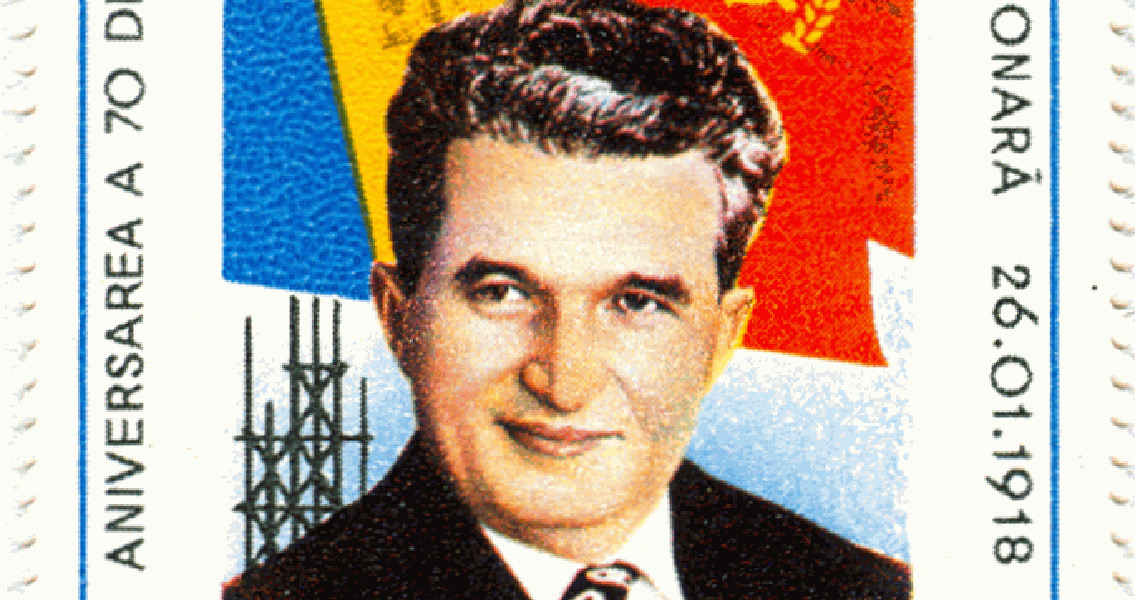<![CDATA[The communist government of President Nicolae Ceausescu was overthrown on 22nd December, 1989, as part of a violent revolution in Romania. 42 years of communist rule came to an end as hundreds of protesters, armed with nothing more than stones, descended on the Central Committee building in the Romanian capital, Bucharest. Crucially, the Romanian army defected to the cause of the anti-communist demonstrators, leaving the president unprotected. Quickly overpowering what little security remained outside the Central Committee building, the protesters stormed inside. Ceausescu and his wife, Elena, fled Bucharest in a helicopter waiting on the roof of the building. It was an appropriately dramatic end to a brutal dictatorship which had descended through the years into increasing absurdity and tragedy. Since coming to power in 1965, Ceausescu had ensured dissidents and critics of the communist regime were jailed or worse - the secret police keeping a rigorous eye over any potential opposition. In 1982, Ceausescu had attempted to pay off Romania's foreign debts by exporting almost all of the country's agricultural and industrial production. The subsequent plummet in supplies of energy, food, fuel, medicine and basic provisions resulting in a shocking fall in Living Standards for the people of Romania. Ceausescu forged an intense cult of personality which would seem like a parody if its consequences hadn't been so tragic. Children recruited into overblown public ceremonies to give the president flowers were forced to undergo quarantine for several days beforehand. Portraits of the president were banned unless they showed both of his ears. Among his grandiose schemes was a plan to bulldoze thousands of Romanian villages, forcefully relocating their inhabitants into 'agrotechnical centres'. The seeds of the regime's collapse had been sown in the collapse of other Communist governments around Eastern Europe. Ceausescu had endeavored throughout his reign to keep Romania distant from the Warsaw Pact and as independent as possible from the leadership of the Soviet Union. At points openly condemning Soviet actions such as the occupation of Prague, and becoming a respected figure in the USA, UK and China, Ceausescu's regime was nevertheless caught up in the wave of change in Eastern Europe which had already seen Poland, East Germany, Czechoslovakia and Hungary break free from the stranglehold of the Soviet Union. Despite the efforts of the Romanian regime to keep events outside the country hidden or obscured, news of the changes had reached the Romanian people. A trigger came on 17th December 1989, a portent of just how bloody the Romanian Revolution would prove to be. Government officials attempting to forcefully evict the pastor Laszlo Tokes from his home were met by a crowd of protesters barring their way. Soldiers were called in who opened fire on the civilians, killing dozens. News spread through Romania, sparking outrage. Ceausescu would be removed from power within week. Following the storming of the Central Committee building, Ceausescu and Elena were quickly apprehended by the recently defected armed forces. On Christmas Day, 1989, the Ceausescus were hastily tried and found guilty of mass murder and other crimes by a military tribunal. They were shot by firing squad later that day- bringing to an end one of the most shocking political regimes in history. ]]>
Ceausescu Regime Ends in Bloody Revolution
